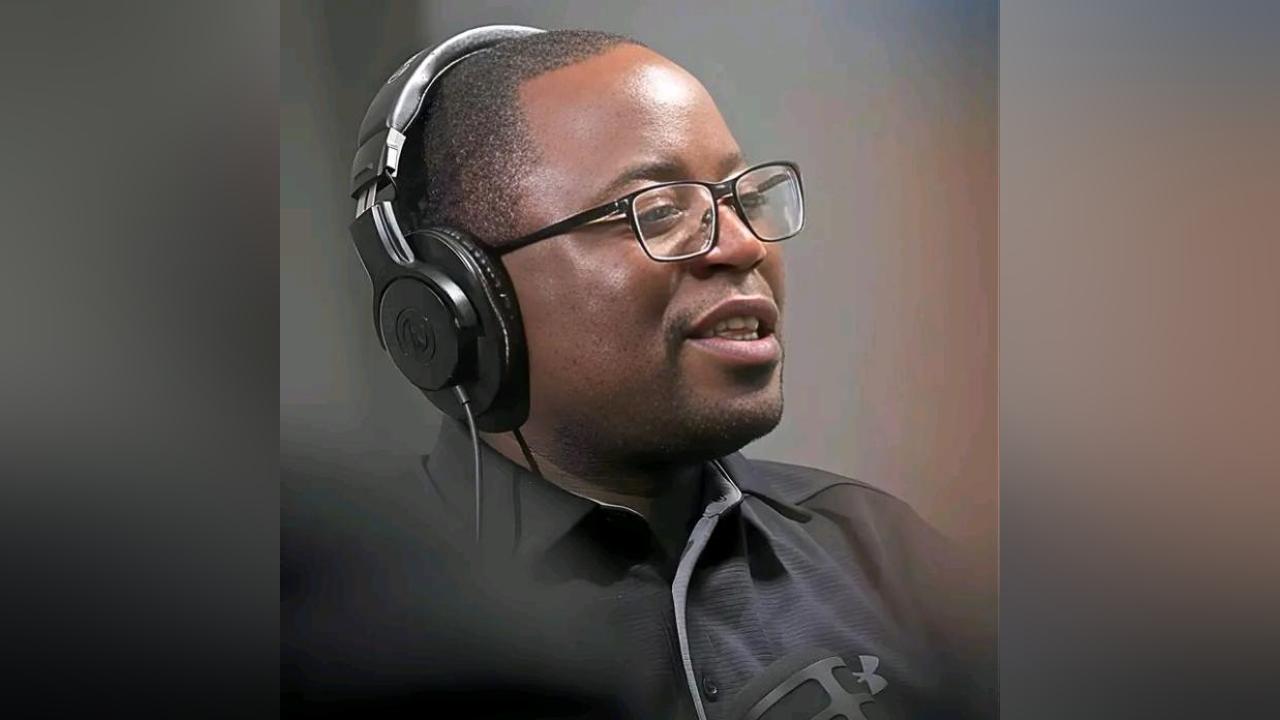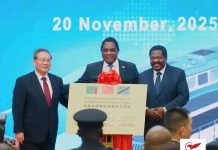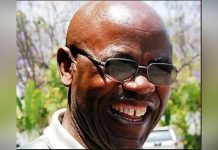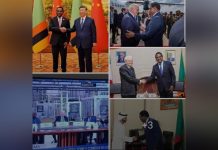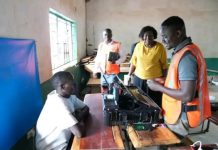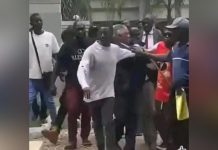By Brian Matambo
Africa-Press – Zambia. Honourable Makebi Zulu used a wide-ranging appearance on Showster’s House Podcast in Lusaka today, 20 November 2026, to accuse President Hakainde Hichilema’s administration of turning state power into a weapon against opponents while failing to deliver on its core economic promises ahead of the 2026 elections.
Speaking to host Jackson Phiri, the Patriotic Front presidential aspirant framed the beating and abduction of PF acting president Given Lubinda in Kabwe, together with the earlier attack on the PF Secretariat, as evidence that cadre violence has not ended but has instead returned with open political protection.
“This is not about people in UPND regalia, it is cadres committing crimes,” Makebi Zulu said, arguing that the ruling party campaigned on ending political thuggery only to preside over what he called an “upsurge” in attacks. He pointed directly at ruling party officials who publicly proclaimed that cadreism was back, saying those words had now translated into real blood and fear on the ground.
He reserved some of his sharpest criticism for the police command. Makebi Zulu questioned how officers could “pass the abductors” to rescue Lubinda and then claim they had no opportunity to make arrests. He contrasted the lack of action in Kabwe and at the PF Secretariat with the swift detentions that followed stone throwing directed at the President.
“If the abductors were PF, we would have seen people bundled into police cars already,” he said, insisting that selective policing is eroding confidence in state institutions. He argued that statements from the Minister of Home Affairs were “not enough,” and called for visible, impartial prosecutions of all involved in political violence.
Makebi Zulu linked the violence to what he described as a broader “shrinking space” for democracy. He cited a string of sedition cases against opposition voices, arguing that the law is applied almost exclusively to critics of government while ruling party figures are left untouched for similar or stronger statements.
People must have “the right to think and the right to say what they think, even when government disagrees,” he argued. In his view, the sedition law is now being used as a political bludgeon, not as a genuine safeguard against threats to the state.
He promised that a PF government under his leadership would repeal the current cyber security regime, which he described as “intrusive” and hostile to investment in the ICT sector. Makebi Zulu said the law opens the door to surveillance of private phones, storage systems and even home CCTV, creating a culture of fear rather than one of open communication.
On the economy, Makebi Zulu cast Hichilema as a president of “broken promises,” arguing that the central grievance of ordinary Zambians is not theory but the cost of survival. He cited higher mealie meal prices, a weaker kwacha, elevated fuel costs and unaffordable fertiliser as a betrayal of the expectations that brought UPND to power.
“People expected the cost of living to go down. Instead, they have one meal a day and 21 hours of load shedding,” he said. He reminded viewers that UPND had mocked PF efforts to stabilise power, only for the country to record what he called “the worst load shedding in the history of this country.”
Makebi Zulu seized on recent remarks by Nigerian industrialist Aliko Dangote on the centrality of power to development, saying it had “taken Dangote” to remind State House of what should be obvious. He contrasted PF era investments and plans in hydropower, thermal projects and nuclear capacity with what he considers stagnation under UPND.
While the criticism was fierce, Makebi Zulu also sketched an alternative policy frame that leans heavily on decentralisation and a rights based approach to development.
He argued that Zambia must build its economy around its comparative advantages, with deliberate provincial hubs. Eastern Province, he said, must be treated as an agricultural engine with incentives for food processing and value addition. The Copperbelt should see locals restored to meaningful participation in mining supply chains, rather than watching contracts flow to foreign or politically connected companies.
On mining, he called for a tougher stance on transfer pricing and a fairer split between investors and host communities. On gold, he said Bank of Zambia should be stockpiling locally produced gold as reserves, pointing to lost opportunities in a period of high global prices.
Makebi Zulu also called for the constitution to be amended in a way that locks in social and economic rights. Education, clean water, decent housing and basic food security should not be presented as favours from a benevolent leader, he said, but as constitutional entitlements that bind any government.
Politics, in his framing, “is about human decency,” and any constitutional project that aims merely to protect incumbents, such as the contested Bill 7, should be resisted.
Inside PF, Makebi Zulu projected confidence that the party’s general conference would proceed despite legal manoeuvres by the Chawinga faction, which is recognised on paper at the Registrar of Societies. He said an injunction obtained in Kabwe was secured without full disclosure, runs against an existing case in Lusaka and must be discharged.
He pointed to the defence filed by Miles Sampa, where the October 2023 gathering he convened was reportedly admitted as illegal, as confirmation that the competing leadership claim cannot stand scrutiny.
PF, Makebi Zulu said, is “bigger than papers held by any individual.” If democracy is strangled to the point that PF is prevented from appearing on the ballot under its current name, he suggested that the movement would still regroup and participate, with all options open.
Asked bluntly what makes him believe he can beat Hichilema in 2026, Makebi Zulu replied that the difference lies in honesty and practicality. In his view, UPND’s record has created a large pool of angry and disappointed voters that only needs credible organisation, unity among opposition actors and strong protection of the vote.
Stealing votes, he said, is “a coup against the people” and should be treated as an assault on the state itself. He urged Zambians to be vigilant at polling stations and described vote protection as a shared national responsibility, not just a party task.
The unresolved dispute over the burial of former President Edgar Lungu hung in the background of the conversation. Callers from South Africa, the United Kingdom and within Zambia pressed Makebi Zulu on why the matter remains unresolved and on his role as family lawyer and spokesperson.
Zulu drew a clear line. A spokesperson does not decide, he insisted, but merely communicates. The decision on where and how to bury Lungu belongs to the family and, in the current standoff, to the courts that the government itself approached.
He said he did not have clearance from the family to elaborate their current position on this particular program and refused to be drawn into what he framed as a propaganda narrative that seeks to pin responsibility for the delay on him personally.
Toward the end of the program, Makebi Zulu was asked about a nickname that has stuck among his critics, “Malukula.” Rather than reject it, he laughed and turned it into a political metaphor, saying perhaps it simply means he has come to bring an end to misrule.
He closed with a warning and a promise. The cyber laws that allow citizens to feel watched each time they speak on WhatsApp, he said, must be scrapped. Judges must be protected from executive interference. State institutions must stop operating as weapons in partisan battles.
PF, under his leadership, he said, would carry a “hammer” aimed not at opponents but at the architecture of impunity. The objective, in his words, is to give Zambians “the country they always expected to have” when they first embraced multiparty democracy.
For a nation heading into a high stakes 2026 election with power cuts, high food prices, legal battles and unresolved wounds over the treatment of a former head of state, Makebi Zulu’s appearance was more than a routine media slot. It was a declaration that the PF intends to contest not only for votes, but for the narrative of who broke Zambia and who can fix it.
Source: Lusaka
For More News And Analysis About Zambia Follow Africa-Press


